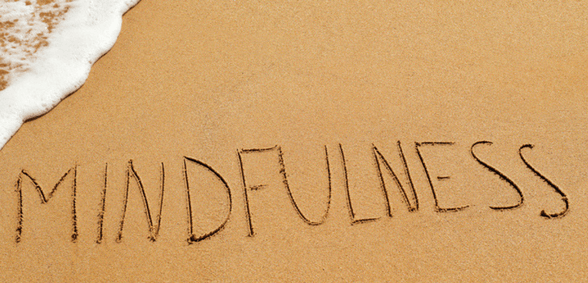
What does your to-do list look like? Is it manageable, or does it stress you out? It seems life has become a rat race in which you can never do enough and it’s difficult to see the finish line. But what if you could channel this intensity?
Dr Michael Sinclair, Josie Seydel and Dr Emily Shaw – practitioner psychologists at City Psychology Group in London and authors of Mindfulness for Busy People: turning frantic and frazzled into calm and composed – share their insights and provide lessons on how to productively manage your busy life
Let’s accept it, as there really is no getting away from it; we live in a busy, frantic and stressful world. Not only are we bombarded by daily, and even moment-to-moment, demands on our time and attention, but we are also obsessed with the pursuit of happiness and high-achievement, risking dangerous stress levels, meltdown or much worse.
The truth is that busyness and stress are inevitable parts of our lives, especially when living in these modern times amidst ever-increasing advancements in technology and more and more pressure to perform at peak levels, in all areas of life, all around the clock!
There seems to be a great paradox that has arisen in our modern society. The more we invent smarter and faster ways of getting things done the more we are creating a frightening world of information overload and are also caging ourselves in increasing levels of stress (that we just want to escape from most of the time).
A focused mind
We are overwhelmed by daily demands and pressures, shooting off emails here and there, checking and responding to others on our social networking profiles, ensuring that we are kept in the loop while also not ignoring others, working harder and longer to keep our jobs during unpredictable times – including when we are not even physically present in the office – helping friends, family and the postman’s cat with all manner of problems and generally spending much of our time rushing from one task to the next, trying to get everything done, attended to and ticked off of our to-do list. The problem with this is that we can find it increasingly difficult to stay focused on one task, at one time, as there are so many distractions demanding our attention.
Before we know it we have created a habit of multi-tasking which, according to research, actually isn’t a very good idea when it comes to our productivity and efficiency; we tend to make more mistakes, we take longer to do tasks and it stresses us out. What’s more, we tend to berate ourselves when we fall behind or make a mistake, in an attempt to get our act together and get things done.
A mind for mindfulness
Again, however, research tells us that being self-critical doesn’t help with motivation or productivity. This isn’t the best approach to use when we want to get things done. Think about it; if you are beating yourself up and feeling all the agitation and stress that comes from doing that, would you be in the best psychological state to think clearly and be productive? Perhaps it’s time to be kinder towards ourselves if we want to improve our effectiveness and efficiency?
Mindfulness has become a scientifically proven, go-to antidote to help us manage our increasingly busy lives, helping you to stay focused, reduce stress and be more productive. The good news is that you can practise mindfulness anytime, anywhere, whether it’s during your commute to work, whilst eating your lunch or even when doing the washing up!
Try out these mindfulness practices throughout your day to help you focus your attention on the job at hand.
1 Take a minute to S.L.O.W. down
S Stop whatever you’re doing and bring your awareness to your breathing.
L Let thoughts, opinions, judgements and urges be.
O Open up your heart, body and mind to what you are feeling.
W Where is most important for you to put your attention right now?
2 Anchor yourself in the present moment and connect with your breathing
- Drop into noticing your breath right here, right now.
- No need to change your breathing in any way. Just notice it, its natural rhythm and sensations.
- Notice the sensation of cool air at your nostrils as you breathe in and slightly warmer breath as you breathe out.
- There it is – your breath, with its natural rhythm and sensations, in this moment.
- Continue to hold your breathing in centre stage of your awareness for the next few minutes.
- No matter how many times your attention may wander from your breath, just gently guide your attention back to noticing your breathing.
3 Mindfully connect with the best version of you, your compassionate self
- Close your eyes and guide your attention towards your breathing.
- Bring to mind the qualities you would ideally like to have if you were someone who was truly calm, confident and compassionate towards yourself.
- Now imagine that you have all these qualities. Breathe in wisdom, strength and kindness, breathe out, knowing that your mind is not your design. Breathe in understanding, non- judgement and empathy and breathe out knowing that your suffering is not your fault.
- Now, imagine what you might say to yourself when you’re being someone who’s caring wise and strong. Notice what tone of voice you would use.
- Imagine how you might be with yourself when you’re struggling with all this busyness? What actions might you take? See if you can create a space in your body for all feelings that arise, welcoming this experience right here, right now. Stay with this for a few moments before returning your awareness to your breathing.
Don’t forget to follow us on Twitter, like us on Facebook, or connect with us on LinkedIn!

Be the first to comment